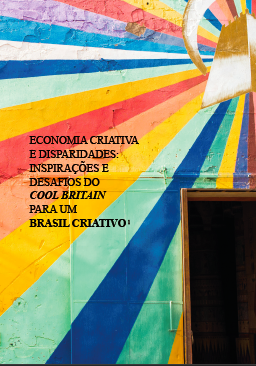Creative economy and disparities Inspirations and challenges from Cool Britain to a Creative Brazil


This article provides an overview of the concept of Creative Economy, and considers its position in relation to contemporary capitalist development. Since 2000 Brazil’s public policies for the creative industries have been modelled on many of the approaches adopted by the United Kingdom which has itself looked to Brazil for inspiration in cultural policies that stimulate social development. This article examines the historical relationship between policy making in Brazil and the UK, and explores the ways each country’s creative industries have evolved in respect to this. Considering the structural differences between the UK and Brazilian models, as well as the different ways the creative industries have evolved in each context, the ambition of this article is to locate the debate in a contemporary vision for global development, and consider the wider implications of the world’s dominant economic systems.


